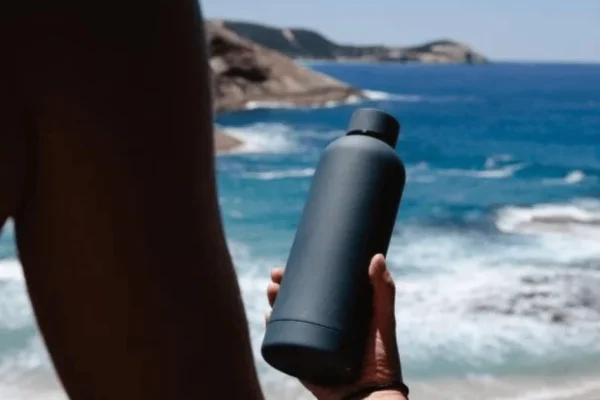Hydration Tips: Unlocking The Power of Water
In achieving a healthier and more energetic life, the importance of proper hydration tips cannot be overstated. Water, often referred to as the elixir of life, plays an important role in maintaining overall well-being and vitality. Real water bottles, understand that staying well hydrated goes beyond just sipping a glass of water. It’s about adopting a lifestyle that prioritizes hydration, and in this comprehensive guide, we’re here to unlock the power of proper water consumption for optimal health.
Table of Contents
The Basics of Health: Why Hydration Matters
Water is the foundation upon which all bodily functions rest. Every cell, tissue, and limb in your body required water to function properly. From digestion and temperature regulation to cognitive function and circulation, water plays an important role in maintaining these essential processes.
Understanding your body's water needs
One of the first steps to mastering hydration understands your body’s water needs. Although the standard recommendation is often cited as eight glasses of water a day, individual needs vary based on factors such as age, activity level, climate and overall health. Emphasize personal hydration, in real water bottles. Calculate your unique water needs by considering these factors and consult a healthcare professional for more accurate guidance.
Hydration and your physical performance
Whether you are an athlete or simply enjoy an active lifestyle, proper hydration can make a significant difference in your physical performance. Dehydration can lead to decreased endurance, muscle aches and fatigue. To stay on top of your game, follow these hydration tips:
Pre-workout hydration
- Begin your workout by drinking water in the hours well-hydrated.
- Choose a balanced electrolyte drink for longer or more intense activities.
- Continue to sip water during exercise to replace fluids lost through sweat.
Rehydration after exercise
- Replenish lost fluids by drinking water or a recovery drink containing electrolytes.
- Monitor the color of your urine; A pale yellow color indicates adequate hydration.
Hydration for cognitive function
Your brain is extremely sensitive to changes in hydration levels. Dehydration can impair cognitive function, leading to loss of concentration, memory problems and mood swings. To improve your mental performance, follow these tips:
Stay ahead of the thirst
Don’t wait until you’re thirsty to drink water. By the time you feel thirsty, your body is already in a mild state of dehydration. Sip water throughout the day to maintain optimal cognitive function.
Limit dehydrated drinks.
Cut back on caffeinated and alcoholic beverages, which can cause dehydration. If you enjoy these drinks, balance them with an equal or greater amount of water.
The role of hydration in digestion
Proper digestion is essential for nutrient absorption and overall health. Water aids in the breakdown of food, making it easier for your body to absorb essential nutrients. Follow these tips for better digestion:
Hydrate before meals
- Drink a glass of water before each meal to start the digestion process. It also helps prevent overeating by promoting a feeling of fullness.
- Stay hydrated throughout the day
- Maintain a consistent amount of water between meals to ensure your digestive system runs smoothly.
Optimizing Hydration: Practical Tips
Now that we’ve explored the important role hydration plays in various aspects of health, let’s consider some practical tips to ensure you stay well hydrated every day:
- Invest in a reusable water bottle.
- Carry a reusable water bottle with you wherever you go. This not only encourages regular hydration but also reduces single-use plastic waste, contributing to a healthier planet.
- Set hydration reminders.
- In our fast-paced lives, it’s easy to forget to drink water. Set reminders on your phone or use hydration apps to prompt you to drink water periodically.
- Flavor your water naturally.
- If plain water doesn’t excite your taste buds, infuse it with natural flavors. Add slices of citrus fruit, cucumber, or mint for a refreshing twist.
- Listen to your body.
Pay attention to your body’s signals. If you experience symptoms such as dry mouth, dark urine, or fatigue, this may be a sign that you need to drink more water.
Ultimately, proper hydration is the foundation of good health, and at Real Water Bottles, we’re committed to helping you unlock its full potential. By understanding your bodies unique water needs, optimizing your hydration for physical and mental performance, and following practical tips, you can begin your journey to better health. Make hydration a lifestyle choice, and reap the rewards of vitality, energy and overall health.

Additional Hydration Tips
Why is hydration important?
Water is essential for many bodily functions, including:
- Regulating body temperature
- Transport of nutrients and oxygen throughout the body
- Removal of waste products
- Lubricating joints
- A pillow for our eyes and spine
When we become dehydrated, our bodies can experience a number of unpleasant symptoms, such as fatigue, headaches, dry mouth, dizziness, and muscle aches. Dehydration can also impair our cognitive function and mood.
How much water do you need?
The amount of water you need each day varies depending on factors such as your age, activity level, climate and overall health. The general recommendation for adults is to drink eight 8-ounce glasses of water per day, but this may not be enough for everyone.
Tips for Staying Hydrated
Here are some simple yet effective tips to help you stay hydrated throughout the day:
Start your day with a glass of water.
This will help rehydrate your body after a good night’s sleep.
Carry a water bottle with you:
Make it a habit to carry a water bottle with you wherever you go, so that you can sip easily throughout the day.
Keep water easily accessible:
Keep a water bottle or pitcher readily available at home, work, and in your car.
Drink your water:
Add pieces of fruit, vegetables or herbs to your water to give it a refreshing taste and encourage you to drink more.
Monitor the color of your urine:
Your urine should be pale yellow or clear. If it’s deep, you may need to drink more water.
Drink plenty of water before, during and after exercise:
Exercise makes you sweat, which can lead to dehydration.
Eat water-rich foods:
Include plenty of fruits and vegetables in your diet, as they contain significant amounts of water.
Be careful about caffeine and alcohol:
Caffeine and alcohol can have a diuretic effect, meaning they can increase your need to urinate and cause dehydration.
Listen to your body:
Pay attention to your body’s signals. Drink water if you feel thirsty.
Additional tips for specific groups
Pregnant and breastfeeding women:
These women may need to drink more water to support their growing baby and milk production.
Elderly:
As we age, our sense of thirst diminishes, making it harder to recognize the need to drink water. Older adults should make a conscious effort to stay hydrated.
Children:
Children may not always remember to drink water on their own, so parents should encourage them to drink water regularly throughout the day.

Frequently Asked Questions
Adequate hydration is essential for maintaining bodily functions, supporting digestion, regulating body temperature and promoting healthy skin. It is the basis for general well-being.
The general guideline is about 8 glasses (64 ounces) of water per day, but individual needs vary. Factors such as age, weight, activity level, and climate play a role. Pay attention to your body and make any adjustments.
While water is the best choice, other beverages such as herbal teas and infused waters contribute to your daily fluid intake. However, watch out for added sugars and caffeine, which can have different effects on hydration.
Carry a reusable water bottle, set reminders to drink, and establish a routine. Drinking water with meals and a glass when you wake up are simple habits that promote constant hydration.
Yes. Symptoms of dehydration include dark yellow urine, dizziness, headache and dry mouth. If you experience them, it’s important to increase your water intake.
Of course! Foods high in water, such as fruits (watermelon, cucumber) and vegetables (lettuce, celery) can increase your hydration. Adding them to your diet is a delicious way to stay hydrated.
Rarely, overhydration (hyponatremia) can occur when you drink too much water, which lowers sodium levels. It’s important to balance your water intake with your body’s needs.
Adequate hydration is critical to optimal athletic performance. Dehydration can lead to fatigue, muscle aches, and decreased endurance. Athletes should pay special attention to staying well hydrated.
Yes, hydration needs can vary throughout the day. Hydration in the morning is important after a good night’s sleep, and staying properly hydrated during exercise is critical. Pay attention to your body’s signals.
Add water with fruits, herbs or cucumber for more flavor. Set hydration goals, use apps to track intake, and consider adding hydrating foods to snacks. Optimizing hydration enhances performance.

